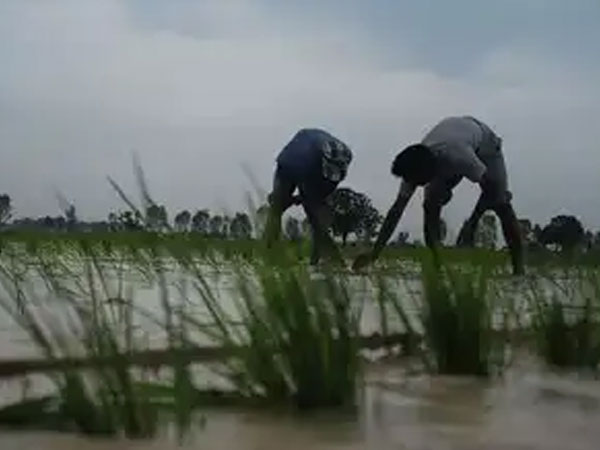 Patiala: Farmers across several sub-mountainous districts of Punjab are grappling with a resurgence of the Southern Rice Black-streaked Dwarf Virus (SRBSDV), locally known as the Fiji or dwarf virus. The outbreak has affected paddy fields and threatens the yield of the upcoming kharif season. In response, some farmers have uprooted infected crops and re-sown paddy, incurring significant financial losses.
Patiala: Farmers across several sub-mountainous districts of Punjab are grappling with a resurgence of the Southern Rice Black-streaked Dwarf Virus (SRBSDV), locally known as the Fiji or dwarf virus. The outbreak has affected paddy fields and threatens the yield of the upcoming kharif season. In response, some farmers have uprooted infected crops and re-sown paddy, incurring significant financial losses.
Agriculture director Jaswant Singh confirmed that the virus has been detected in a few districts -- Ropar, Fatehgarh Sahib, Sangrur, Patiala, Mohali, and Nawanshahar -- but has not yet spread widely. "We are monitoring the situation and guiding farmers for timely action. It is critical to detect symptoms early and act promptly," he said, urging farmers to report any signs of dwarfing immediately to Krishi Vigyan Kendras (KVKs) or Panjab Agricultural University (PAU) experts.
In Ropar, chief agriculture officer Rakesh Kumar reported virus infestation in around 100 acres. Awareness camps are being held in villages alongside ongoing field surveys. The district has a total paddy cultivation area of 39,000 hectares.
Patiala district has also reported infections in villages under Samana, Rajpura, Ghanaur, and Patiala subdivisions. About 300 acres show signs of infestation, though actual crop uprooting remains limited, only a few acres in Mohabbatpura and three acres in Ghanaur, according to agriculture department officials.
SRBSDV is transmitted by the whitebacked planthopper (WBPH) and severely stunts plant growth. Infected plants develop narrow upright leaves, weak roots, and are nearly half or one-third of their normal height.
"This year, most of the affected crop belongs to the PR 131 variety. Farmers, in panic, have started uprooting the affected paddy and resowing either Basmati or PR 126," said Jaswinder Singh, chief agriculture officer, Patiala. He noted that nearly 2.33 lakh hectares in the district are under paddy cultivation this year, with 20% under PR 131.
Farmers say they are bearing heavy losses due to re-sowing. "We are spending between Rs 10,000 to Rs 15,000 per acre on re-sowing and about Rs 1,500 per acre for spraying insecticides to manage the infection," said Sarbjit Singh, a farmer from Mohabbatpura village in Patiala. "There will be yield loss for this late-sown crop, and we may face hurdles during the late procurement period due to high moisture content," he added.
Despite following recommended preventive measures such as nursery sprays and sowing after June 15, some farmers still faced infections, raising concerns about the effectiveness of current advisories. "Even after spraying during the nursery stage and sowing after June 15, our recommended PR 131 and 132 crops were hit. Only my PR 126 was safe, but rice millers don't buy it readily, so we avoid growing it," Sarbjit said, also recalling similar infections in 2022 when no compensation was offered despite multiple representations to authorities.














© Copyright 2025 The SSResource Media.
All rights reserved.